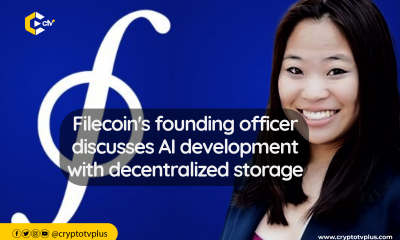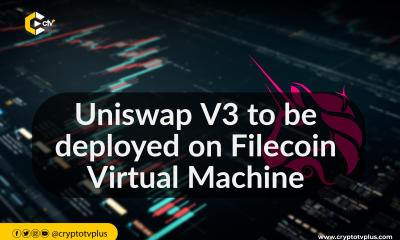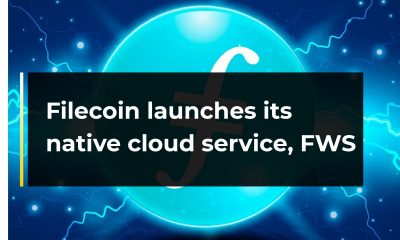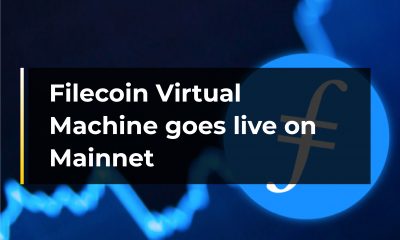Education
Filecoin; all you need to know
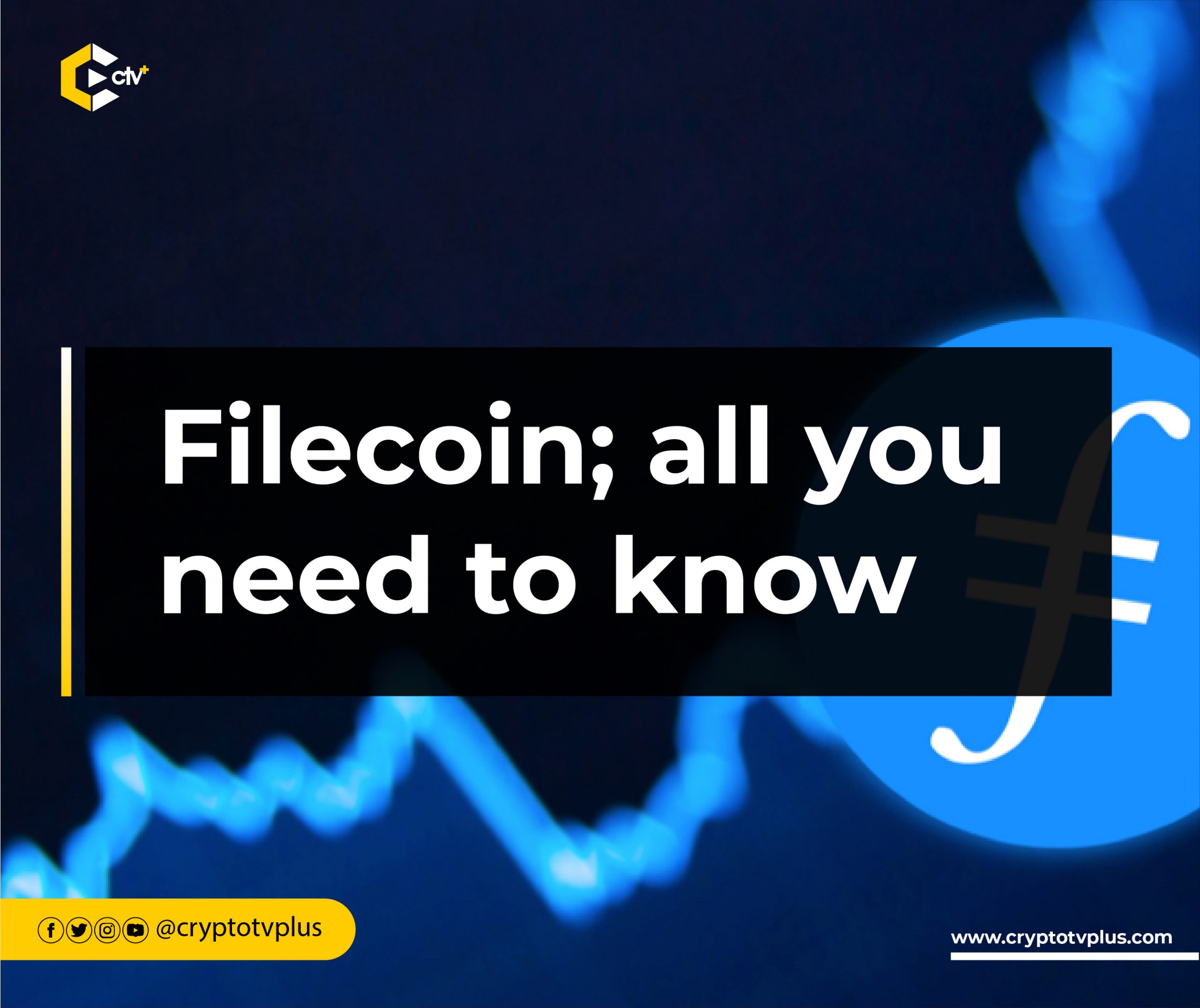
Filecoin is a decentralized storage network that provides a marketplace for users to rent out unused hard drive space to others who need storage for their files. It was launched in 2020 by Protocol Labs, a research, development, and deployment lab focused on decentralized technologies. In this article, we will dive deeper into what Filecoin is, how it works, and its potential benefits.
Filecoin aims to create a decentralized storage network that is secure, efficient, and affordable. Unlike traditional storage solutions that are centralized and owned by large corporations, Filecoin is owned by its users. Anyone can participate in the network as a storage provider or a user.
Advantages over traditional storage systems
Storage providers can earn Filecoin by renting out their unused hard drive space to other users. The amount of Filecoin a provider earns is based on how much storage they provide and for how long. The network uses a consensus mechanism called Expected Consensus (EC) to ensure that providers are actually storing the files they claim to be storing. This helps prevent fraud and ensures that the network remains secure and reliable.
Users can use Filecoin to store and retrieve files from the network. They pay for storage using the Filecoin cryptocurrency. The cost of storage is determined by supply and demand. If there is more storage available than users need, the price will be lower. If there is more demand than available storage, the price will be higher. This creates a market-driven system that encourages efficient use of resources.
It aims to be more efficient and secure than traditional storage solutions and one way it does that is by being fault-tolerant. Traditional storage solutions rely on a single point of failure, such as a server or a data centre. If that point of failure goes down, all the data stored on it is lost. In a decentralized network like Filecoin, the data is stored on many different nodes, so even if some nodes fail, the data remains intact.
Filecoin also uses advanced encryption to protect the data stored on the network. This helps prevent unauthorized access and ensures that the data remains secure.
Components of Filecoin
Filecoin is a complex system made up of various components that work together to provide decentralized storage. In this answer, we will explore some of the key components of the Filecoin system:
- Client: The Filecoin client is a software application that users can install on their computers or servers to interact with the Filecoin network. The client allows users to store and retrieve files from the network, manage their Filecoin wallet, and monitor their storage and retrieval deals.
- Storage Miners: Storage miners are users who provide storage to the Filecoin network. They can earn Filecoin by renting out their unused hard drive space to other users. Storage miners must provide proof that they are actually storing the files they claim to be stored using the protocol’s algorithm.
- Retrieval Miners: Retrieval miners are users who specialize in retrieving files from the Filecoin network. They can earn Filecoin by providing fast and efficient retrieval services to other users. Retrieval miners are not required to provide storage to the network.
- Filecoin Protocol: The Filecoin protocol is a set of rules and procedures that govern how the Filecoin network operates. It includes the Expected Consensus (EC) algorithm, the marketplace for storage and retrieval deals, and the rules for file storage and retrieval.
- Filecoin Storage Market: The Filecoin storage market is a marketplace where storage providers can list their available storage capacity and users can request storage for their files. The market uses a supply-and-demand pricing model, with the price of storage being determined by the amount of available storage and the amount of storage requested.
- Filecoin Retrieval Market: On the Filecoin retrieval, retrieval miners can list their retrieval services and users can request file retrieval. The market uses a similar supply-and-demand pricing model as the storage market.
- Filecoin Wallet: The Filecoin wallet is a digital wallet that users can use to store and manage their Filecoin cryptocurrency. It allows users to send and receive Filecoin, monitor their transaction history, and manage their storage and retrieval deals.
- IPFS: InterPlanetary File System (IPFS) is a peer-to-peer network for storing and sharing files in a decentralized manner. Filecoin uses IPFS as its underlying storage technology, allowing files to be stored in a distributed and fault-tolerant manner.
- FWS: Filecoin Web Service is the latest aspect of its ecosystem released for developers and organizations to create decentralized applications.
Filecoin is a complex system with many different components that work together to provide decentralized storage. The system includes storage and retrieval miners, the Filecoin protocol, the storage and retrieval markets, the Filecoin wallet, and the underlying IPFS technology. Each component plays a critical role in ensuring the security, efficiency, and reliability of the Filecoin network.
Consensus mechanism of Filecoin
Filecoin uses the Expected Consensus (EC) algorithm to validate all transactions on the protocol. It is a probabilistic, Byzantine fault-tolerant consensus system that functions by conducting a secret, fair, and verifiable leader election at each epoch in which a certain number of participants may become eligible to contribute a block to the chain based on fair and verifiable criteria.
The Expected Consensus (EC) algorithm uses a combination of PoRep and PoSt, two proof systems developed by Filecoin, to achieve consensus. If the EC algorithm determines that the proofs are valid, the storage miner is rewarded with Filecoin tokens.
If the proofs are invalid or the storage miner is not performing correctly, they may be penalized with a reduction in their rewards. The algorithm is designed to ensure that storage miners are providing high-quality storage and retrieval services, while also incentivizing them to participate in the network and follow the rules.
Filecoin Virtual Machine
The Filecoin Virtual Machine (VM) is a software platform that enables developers to write and deploy smart contracts on the Filecoin network. It uses a stack-based architecture similar to other blockchain VMs, enabling it to support a wide range of programming languages such as Rust, Go, and AssemblyScript.
The FVM is completely EVM-compatible, permitting new ERC-20 tokens to be created on the Filecoin network and layer two networks to benefit from its storage power and security. The bulk of EVM tools is also applicable to the Filecoin ecosystem.
It also supports native storage and retrieval operations, a gas metering system, and a suite of tools and libraries that simplify the development and deployment of smart contracts. The VM is a crucial component of the Filecoin network’s infrastructure, enabling the creation of decentralized applications that leverage the network’s storage and retrieval capabilities.
Tokenomics of Filecoin
Filecoin (FIL) is the native cryptocurrency of the Filecoin network and is used to pay for storage and retrieval services on the platform. The maximum supply of Filecoin is capped at 2 billion FIL and no new FIL will be minted after the initial distribution. The initial distribution of Filecoin was done through a public initial coin offering (ICO) in 2017, which raised over $250 million.
Mining rewards are distributed based on the amount of storage space and bandwidth provided by the miner, as well as the quality of service they provide. Inflation and block rewards are designed to gradually decrease over time as more storage is added to the network.
The token utility is used to pay for storage and retrieval services on the network, with the price of storage and retrieval determined by supply and demand in the market. The tokenomics of Filecoin are designed to incentivize storage miners to provide high-quality storage and retrieval services, while also providing a means of payment and governance for users and stakeholders on the network.
Team behind Filecoin
Filecoin was founded by Juan Benet with the Protocol Labs team. Protocol Labs is a research, development, and deployment lab focusing on decentralization, cryptography, and other advanced technologies. He is a computer scientist and entrepreneur who has been active in the blockchain and cryptocurrency for several years. He is also the creator of IPFS, the underlying technology that Filecoin uses for decentralized file storage.
Other team members are:
Colin Evran, Head of Ecosystem Development at Protocol Labs, is responsible for building partnerships and collaborations with other companies and organizations in the blockchain and cryptocurrency space.
Molly Mackinlay serves as the Head of IPFS at Protocol Labs and has been instrumental in the development of the IPFS technology that underlies Filecoin. She oversees the team responsible for IPFS development and integration with Filecoin.
Jeromy Johnson, the Head of Developer Experience at Protocol Labs, also works to improve the development experience for Filecoin and other projects. He works closely with developers to ensure that the tools and resources they need are available and easy to use.
In addition to these key members, the Filecoin team includes many other talented individuals who work on various aspects of the project, including engineering, design, marketing, and community development.
Since its launch, Filecoin has attracted a large and active community of developers, storage miners, and users. The project has received significant funding and support from a number of prominent investors, including Sequoia Capital, Andreessen Horowitz, and Winklevoss Capital, among others.
Roadmap of Filecoin
Since the publication of its initial whitepaper in 2014, Filecoin has been working towards its vision of a decentralized storage network. The project has progressed through numerous stages and has reached several significant milestones along the way. A high-level summary of the Filecoin roadmap is provided below:
Phase 0 (2014-2017): Research and Development
The Filecoin team did research and development on the underlying technologies that would be utilized to establish the decentralized storage network during this phase. This involved the design of the proof-of-replication (PoRep) and proof-of-spacetime (PoSt) consensus techniques, as well as the InterPlanetary File System (IPFS).
Phase 1 (2017-2018): Testnet and Mining Competition
During this stage, the Filecoin team released a public testnet and a mining competition to encourage storage miners to participate.
Phase 2 (October 2020): Mainnet Deployment
Filecoin will deploy its mainnet in October 2020, marking a significant milestone in the development of the decentralized storage network. A large-scale token distribution event was held in conjunction with the launch, as well as the release of various tools and resources for developers and storage miners.
Phase 3 (2021 and beyond): Expansion and Growth
Filecoin is now focusing on developing and expanding the network through more acceptance, improved usability, and recruiting additional storage miners and developers to the platform. To allow additional use cases and applications, the project is also focusing on interfacing with other blockchain and decentralized finance (DeFi) initiatives.
Filecoin has several projects planned for the near future, including improving storage and retrieval efficiency by introducing new consensus processes and storage protocols, extending the Filecoin ecosystem by fostering the creation of new applications and services built on top of the network, improving developer experience by releasing additional tools and resources for developing decentralized Filecoin applications, and improving accessibility through user interface simplification.
Read also;



